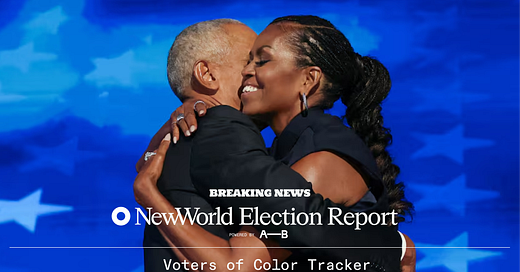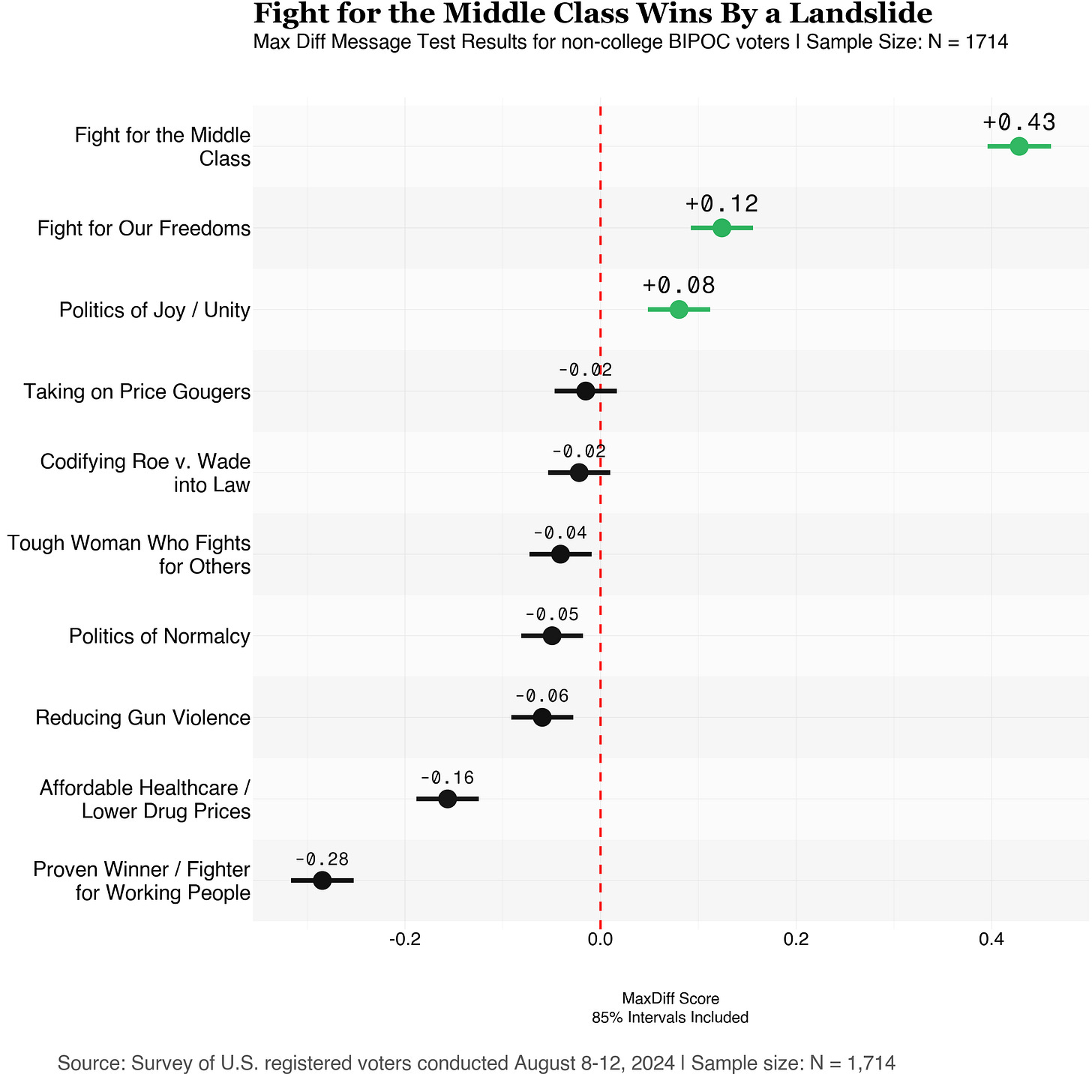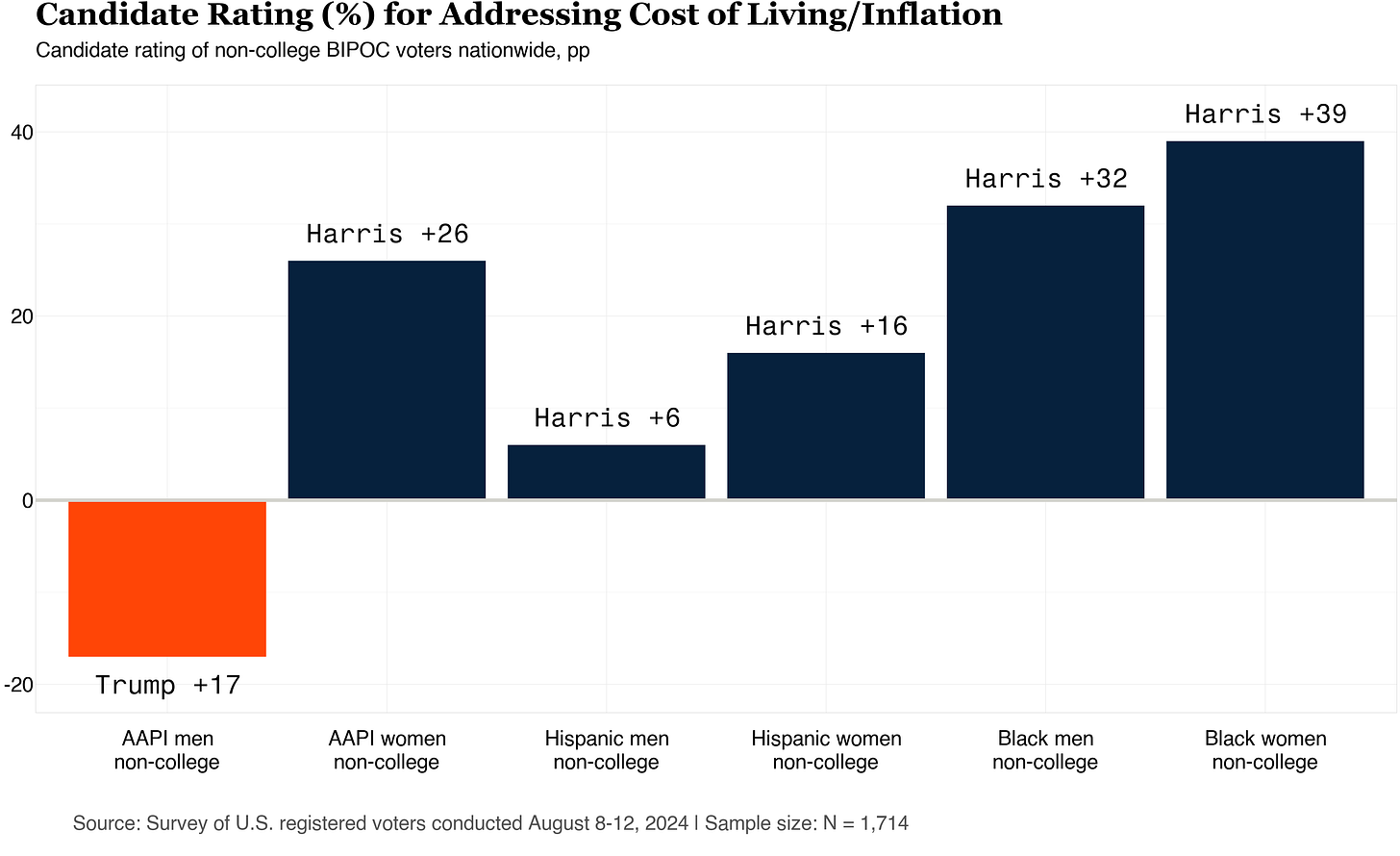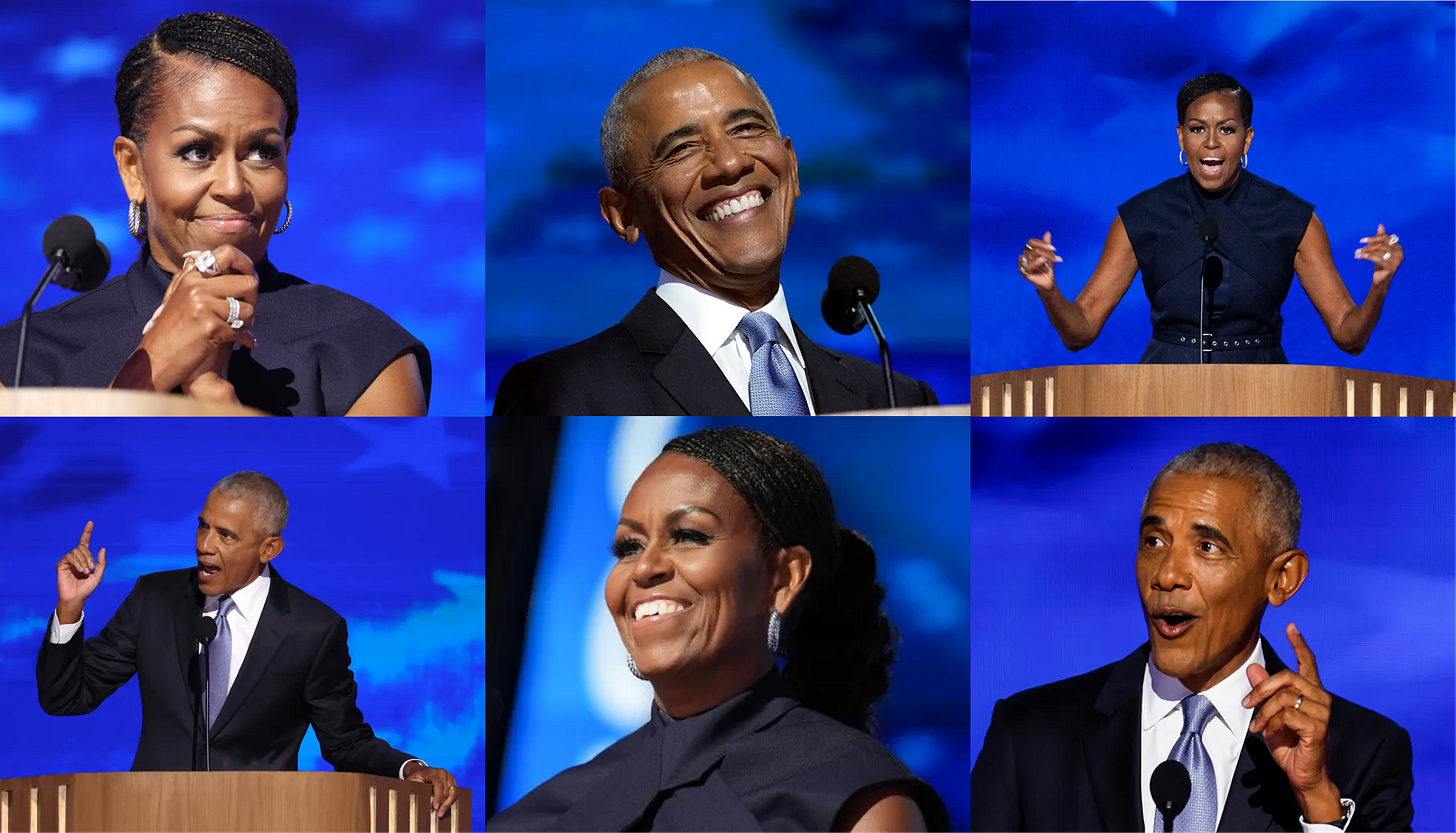Last night in a pair of powerful DNC speeches, the Obamas once again appealed to voters’ “better angels” making the case for hope and joy as the only viable path to reset a deeply divided nation.
But are the politics of joy a practical strategy to mobilize millions of skeptical swing state voters on the edges of our base?
This week our bi-weekly tracking poll of critically decisive (and often overlooked) voters of color with less than a college degree, gleaned key insights into how the politics of joy are resonating among a corner of the American electorate research shows are most likely to feel left out and left behind.
Highlights from our tracking poll of BIPOC registered voters without a college degree from August 8 to August 12, 2024:
“Fighting for the Middle Class” was seen as the most effective message for every segment, across race and gender.
This was one of the rare places where we saw emphatic agreement across this cross-section of the base.
This message framed Kamala’s proposed agenda as a mission to champion the middle class, clearly stating kitchen table solutions (fair wages, affordable healthcare, etc).
But at the same time a message about VP Harris being a “proven fighter” for the working class was among the least effective for every group.
This suggests that either 1) this similar message centered on the candidate rather than the voter was less compelling or 2) these voters don’t know or are unconvinced by VP Harris’s record as a fighter.
The “Politics of Joy” is real, effective, and probably underestimated, particularly among men of color.
This message was also among the top rated for AAPI men, Hispanic men, and Black men without college degree
This message centered on ending divisions and uniting the country beat out messages about taking on price gougers, fighting for reproductive freedom, lowering drug prices, and being a tough woman who fought to get where she is.
But what does it mean to “fight for the middle class”?
Balancing diverse priorities is tricky.
Cost of living is the top issue across all segments, but there’s a wide spectrum of confidence in who is best equipped to address it.
AAPI men without a college degree: Trump +17
AAPI women without a college degree: Harris +26
Hispanic men without a college degree: Harris +6
Hispanic women without a college degree: Harris +16
Black men without a college degree: Harris +32
Black women without a college degree: Harris +39
On issues, AAPI rate crime and immigration in their top 5.
By significant margins, AAPI men without a college degree say Trump will be more effective at addressing crime (+25%) and immigration (+39%).
AAPI women without a college degree say that Trump will be more effective at addressing immigration (+34%) and say that Harris will be more effective at addressing crime (+12%). )
Abortion is a top issue for voters of color with less than a college degree.
Every segment except AAPI men listed this in their top 5 issues.
Black men and Black women both ranked healthcare #2 and abortion #4.
Both saw VP Harris as far more effective at addressing these issues by wide margins.
Kamala Harris is winning across the board on competence, reversing a major Biden liability, but there are some areas of concern.
While Black women lead in rating VP Harris as more competent than Trump (+45), only 49% strongly agree Harris stands up for “people like me”.
Only 36% of Black men strongly agree that VP Harris represents them.
Survey says: The joy matters, but don’t forget to bring your candidate’s resume to counter the most effective attacks against them.
All our segments saw attacks around inflation being the most effective against VP Harris.
Male and female AAPI voters without a college degree, as well as Black female voters without a college degree, said that attacks citing a lack of Harris achievements were extremely effective.
And these are just the highlights from this week’s full tracking poll results. Want more? Reach out for:
Breakdowns of our 6 key base voters, including vote propensity, faith, values, consumer best and merits consumption.
Hear from these voters in their own words, what they believe would be “the best thing about a Kamala Harris presidency”.
Top issues, most and least effective messages, where the campaigns stand on labor and championing the middle class, and who voters believe the campaigns are most likely to advocate for once in power.
Next steps:
Next week: more messaging and content based on these results, white labeled for your org.
Check out our post on research methods and approach if you want to know how the sausage is made.
Want to see the messages we tested or have a question about the data? Message me here or reply back - we got you.









